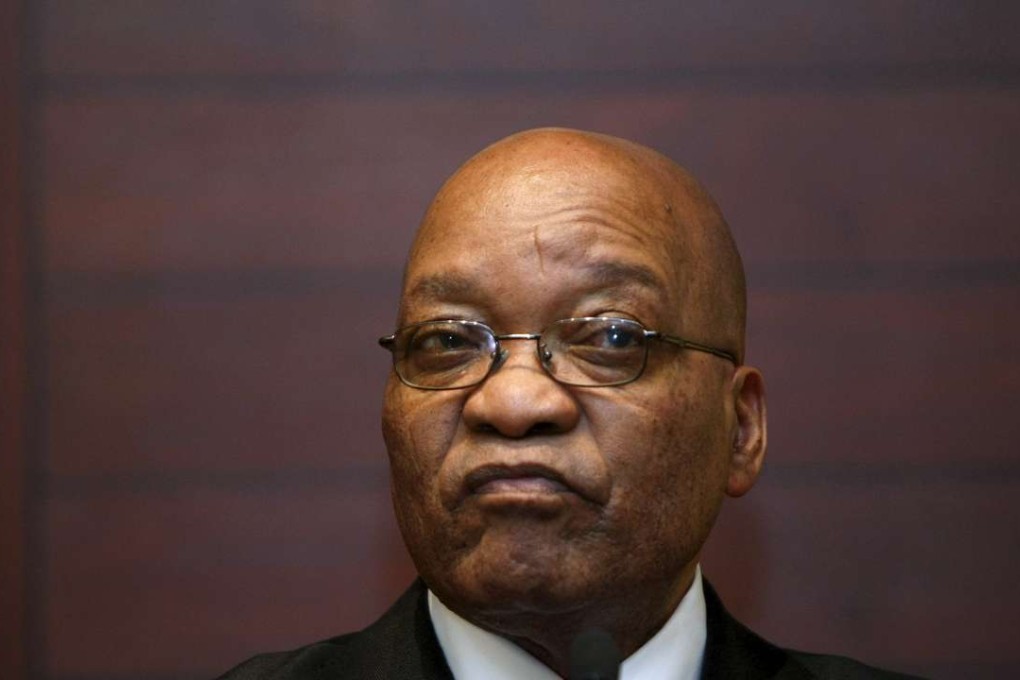South Africa’s President Zuma defeats impeachment vote over home renovation scandal

South African President Jacob Zuma has survived an impeachment vote in parliament launched after the constitutional court ruled he had ignored an order to repay state funds spent on his private home.
At a fiery session, the African National Congress (ANC), which controls almost two-thirds of the 400-seat assembly, gave Zuma the support he needed to save him from impeachment.
A total of 233 lawmakers voted on Tuesday against the impeachment motion, with 143 voting in favour. Zuma did not attend the proceedings.
The motion, launched by the opposition Democratic Alliance (DA), led to emotional debate following last week’s ruling by the court that the president had breached the constitution by ignoring an order to repay some of the US$16 million in state funds spent on renovating his home.
“The choice is whether or not you will choose to protect your oath of office that you took here in this house, to protect the constitution or to serve Jacob Zuma,” Mmusi Maimane, leader of the DA party said.
Julius Malema, leader of the smaller opposition party Economic Freedom Fighters, said “Zuma and the ANC want to convert South Africa into a banana republic.”